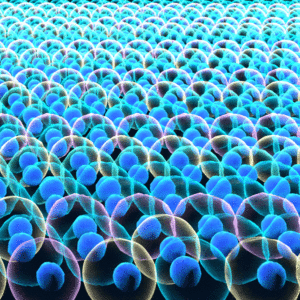Single Cell Technologies and Analysis
19–26 July 2019
Wellcome Genome Campus, UK
Learn the latest methodologies and applications for the analysis of nucleic acids from eukaryotic single cells
Summary
The development of robust protocols sensitive enough to measure nucleic acids from single cells is revolutionising biology, enabling the interrogation of molecular mechanisms not evident from measurements that represent the average of thousands of cells.
Currently, established plate-based protocols (such as Smart-seq2) provide scalable and robust measurements of mRNA. However, technologies in this field are rapidly evolving, and have recently enabled RNA-seq to be conducted on thousands of single cells in parallel (e.g. 3’ end sequencing of mRNA in droplets) and for multiple classes of nucleic acid to be captured from the same cell (e.g. DNA and RNA with G&T-seq). Reliable statistical methods for analysing these data are also being developed, though it can be difficult for those new to the field to identify the tools most suitable for the analysis of their data.
This exciting course is taught collaboratively by researchers from the Wellcome Sanger Institute. The programme will provide participants with a broad overview of established and cutting-edge single cell methodologies, practical experience in the relevant molecular biology and laboratory skills, and the computational and statistical skills needed to interpret these large data sets.
The course provides intensive hands-on training in small groups on widely applicable plate-based full-length mRNA sequencing (Smart-seq2) and hands-on overview of performing higher throughput 3’ end based protocol (10x chromium/Drop-seq/Seq-well). The participants will also learn analysis of single-cell RNA-sequencing datasets including the most widely used tools and methods.
The programme will include demonstrations on cell handling, Flow cytometry, (FACS) microfluidics systems and additional single-cell sequencing technologies.. These will be guided by course instructors to maximise the breadth of technologies we are able to demonstrate and discuss within the time frame of the course. The integration of data analysis within the course will allow participants to critically evaluate both the technical performance and the biological interpretation of single cell data sets that they have generated.
There will be a significant bioinformatics component in the course, as even primarily wet-lab based researchers need to understand the key QC metrics for single cell data to evaluate the data and any necessary protocol optimisations.
The practical lab and data analysis sessions will be complemented by distinguished guest speakers, who will present the latest research in this fast-moving field, along with opportunities for informal discussions.
Programme
The course will include laboratory and computational practical sessions*, along with lectures and discussions, covering the following topics:
- Preparation and isolation of single cells (including preparation of suspensions, single cell sorting with FACS and brief overview of tissue dissociation methods)
- Cell counting and quality control
- Full length single cell mRNA sequencing in 96-well plates (Smart-seq2 protocol)
- 3’ end single cell mRNA sequencing from thousands of cells (10x genomics) and an overview of Drop-seq and Seq-Well methods
- Demonstration and overview of multi-omics for single cells (including G&T-seq for DNA/RNA)
- Automation of single cell protocols
- Illumina sequencing of single cell libraries
- Data processing, data handling and QC of single cell data sets
- Downstream analysis of single cell data (e.g. differential gene expression analyses and clustering) including widely used methodological concepts and tools for data analysis.
Learning Outcomes
After attending this course, participants will able to:
- Evaluate advanced methodologies for the analysis of nucleic acids from eukaryotic single cells, along with their applications
- Appreciate different approaches currently in use in the field to address specific research questions
- Assess the strengths, weaknesses and limitations of different methodologies and approaches (experimental and computational).
- Integrate and apply the knowledge and training from the course to their own research interests
* To fully benefit from the data analysis sessions, it is expected that participants will have, at a minimum, familiarity with steps involved in analysis of sequencing data and basic knowledge of Linux/Unix as well as the R programming environment. There are numerous online tutorials available for these, including:
http://www.ee.surrey.ac.uk/Teaching/Unix/
http://tryr.codeschool.com/
Instructors and speakers
Course instructors
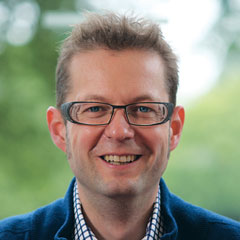
Thierry Voet
Wellcome Sanger Institute, UK
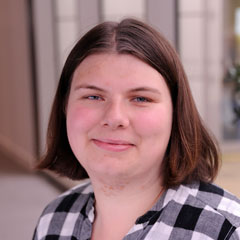
Lia Chappell
Wellcome Sanger Institute, UK
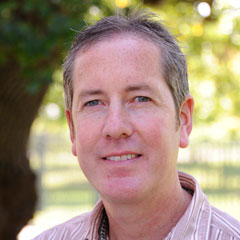
Peter Ellis
Wellcome Sanger Institute, UK
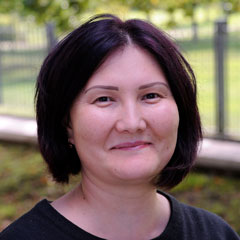
Lira Mamanova
Wellcome Sanger Institute, UK
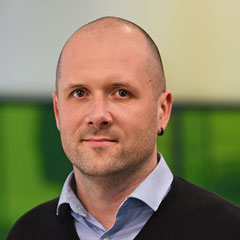
Vladimir Kiselev
Wellcome Sanger Institute, UK
Kedar Natarajan
University of Southern Denmark
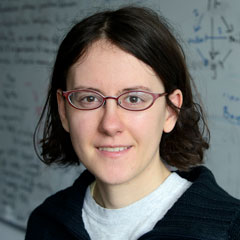
Tallulah Andrews
Wellcome Sanger Institute, UK
Guest speakers
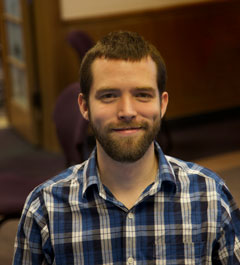
Andrew Adey
Oregon Health & Science University, USA
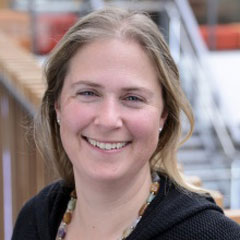
Sarah Teichmann
Wellcome Sanger Institute and EMBL-EBI, UK
How to apply
Prerequisites
The course is aimed at researchers interested in applying advanced laboratory and computational methodologies for the analysis of nucleic acids from eukaryotic single cells, with a strong emphasis on mammalian systems. It is suitable for PhD students, postdocs and clinician scientists/healthcare professionals, as well as staff from Core Facilities. It is expected that participants will have, at a minimum, familiarity with steps involved in analysis of sequencing data and basic knowledge of Linux/Unix as well as the R programming environment. There are numerous online tutorials available for these, including:
http://www.ee.surrey.ac.uk/Teaching/Unix/
http://tryr.codeschool.com/
How to Apply
Please complete the online application form. Places are limited and will be awarded on merit. If you have any problems with the online application process, please contact us.
Please note: Applications must be supported by a recommendation from a scientific or clinical sponsor (e.g. supervisor, line manager or head of department). A request for a supporting statement will be sent to your nominated sponsor automatically during the application process. Applicants must ensure that their sponsor provides this supporting statement by the application deadline. Applications without a supporting statement cannot be considered.
Travel visas
Successful applicants will be provided with a support letter for their visa application, if required.
Please visit the following websites for further information on visiting the UK:
Cost
| Cost | Accommodation / meals | |
| *Course fee | £1150 | This is a residential course and the fee includes all accommodation and meals. |
*The course fee is subsidised by Wellcome Genome Campus Advanced Courses and Scientific Conferences and applies to non-commercial applicants. Please contact us for the commercial fee.
Bursaries
Limited bursaries are available (up to 50% reduction on the course fee) and are awarded on merit. If you would like to apply for a bursary, please complete the bursary section of the online application form.
Where there are many bursary applications, the selection committee may issue smaller amounts.
Bursaries can be applied for as part of the course application form. Applicants will be notified of a bursary award along with their place on the course, usually within one month of the application deadline. The decision of the selection committee is final.
Please note that both the applicant and sponsor are required to provide a justification for the bursary as part of the application.
Additional funding opportunities
Visit our support page for additional financial support currently available.
Accommodation services phishing scam – please be vigilant. More information.
Testimonials
Feedback from the inaugural 2018 course:
“Excellent course. It made the field very accessible and was a great environment to refine our experimental plan and to consider possible new directions. The planning and execution clearly received a great deal of effort and enthusiasm so many thanks to those involved!”
“A great experience, I would definitely recommend!”
“Thanks to all of the organisers and instructors on the course. I found it really useful and people were all friendly and willing to help provide advice for carrying out scRNA-Seq and other sequencing queries back at delegates own institutions. Well done!”
“This course has definitely helped demystify single cell technology and will help me modify the experimental design plan for the assays we are currently working on.”
“I believe in my experience this course has provided me with a firm foundation of knowledge, experience and contacts to move forward into the single cell sequencing field. There is only so much that can be covered over the course but it did an outstanding job of covering enough to go away and give it a go, and build upon this knowledge.”
“Just a thanks to the organizers, instructors and staff – it was a great experience and a lot of fun. I learned a lot.”
“The standard and content of seminars and speakers was outstanding.”
“The quality and openness of speakers was fantastic”
